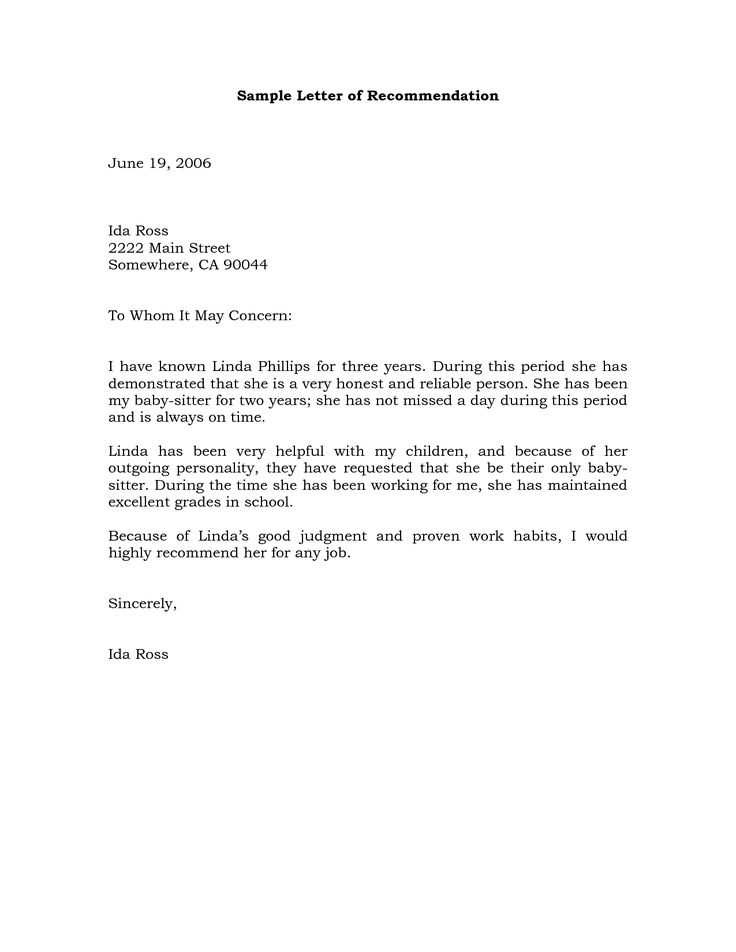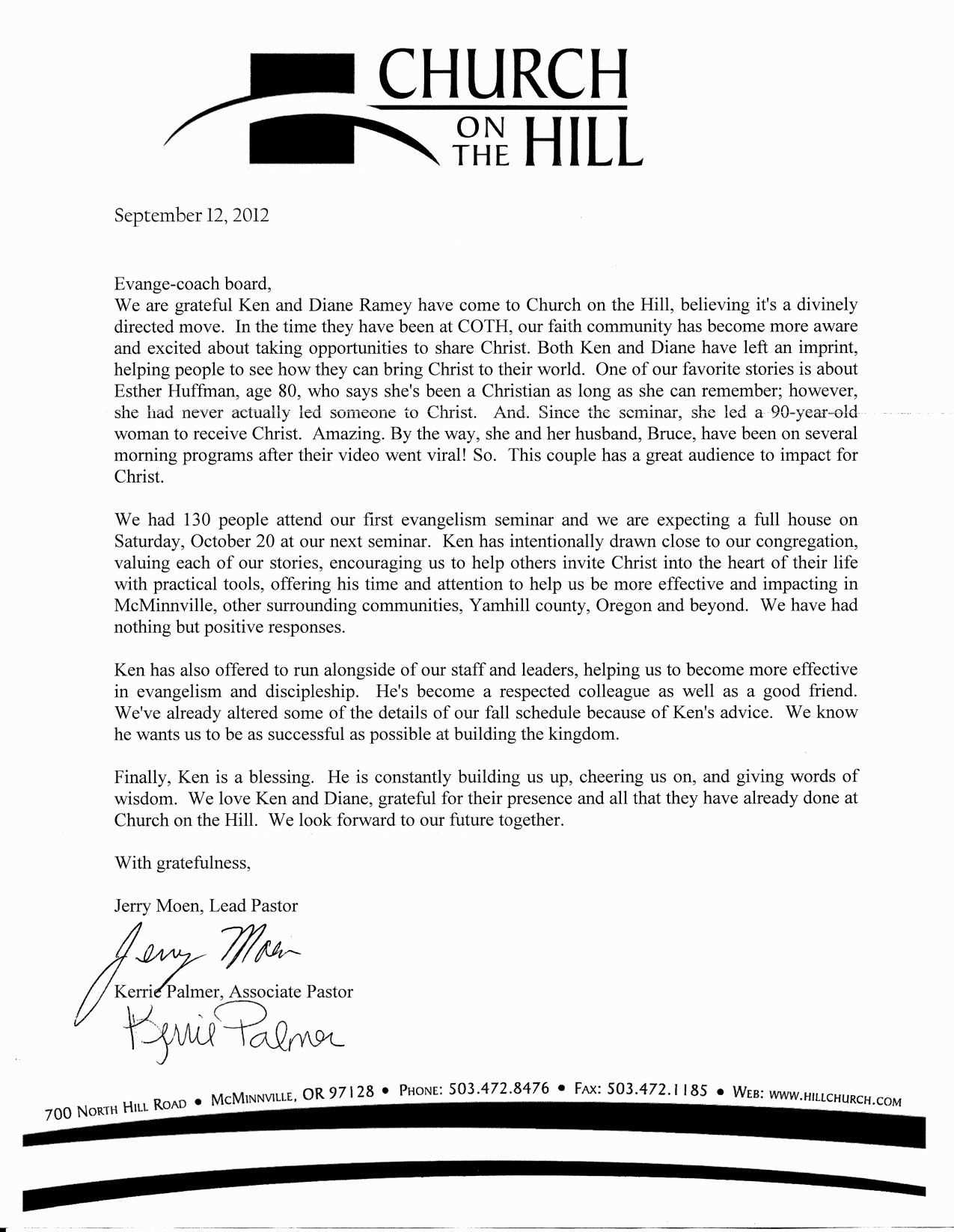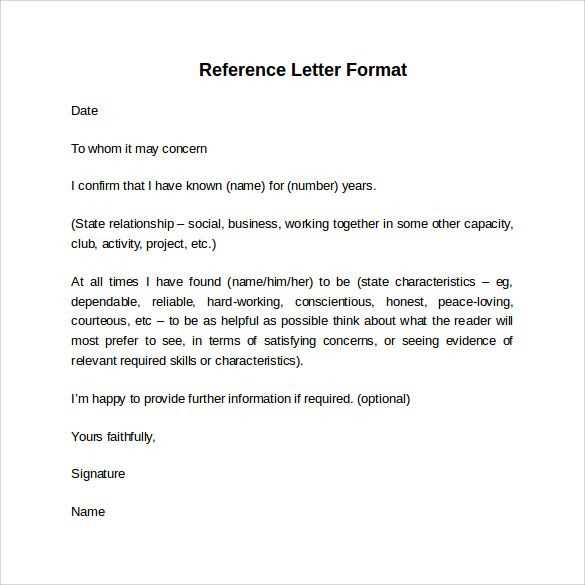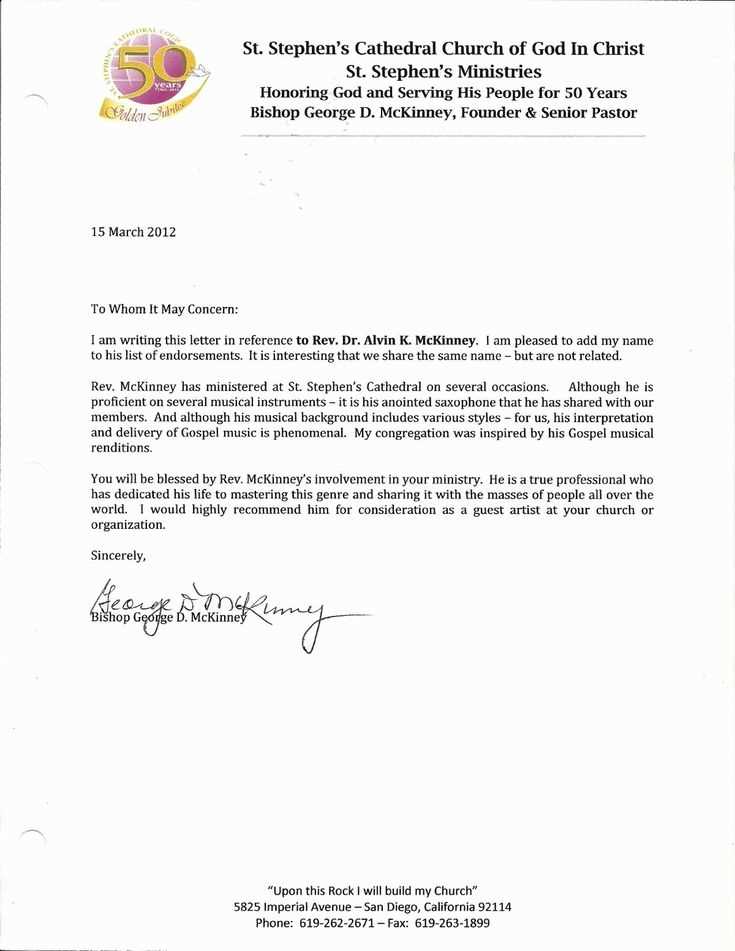Pastoral reference letter template

A pastoral reference letter is a valuable document that reflects the character, values, and contributions of an individual within a religious or spiritual community. Use a clear and structured approach when writing this type of letter to ensure it conveys the individual’s positive attributes and suitability for a particular role or opportunity.
Start by identifying the person you are recommending, highlighting your relationship with them and how long you have known them. Include specific examples of their involvement in community service, leadership, or any other relevant activities. This adds credibility and demonstrates the impact they have made within the group.
Be sure to describe their personal qualities, such as compassion, dedication, and integrity, with concrete examples. It’s important to avoid vague or general statements and instead focus on specific situations where the individual’s character was clearly demonstrated. If they have shown leadership in church activities or supported fellow members, mention these experiences.
Conclude with a strong, positive recommendation that clearly states your belief in the individual’s potential to succeed in their next step. Provide your contact details in case further information is needed, ensuring that your letter serves as a comprehensive endorsement of their abilities and character.
Here’s the revised version:
Begin by addressing the person you are recommending with a warm and personal touch. Mention how long you’ve known them and in what capacity. This helps establish the context of your relationship. For instance:
Introduction
“I’ve had the pleasure of knowing [Name] for [X] years, during which time I served as their [mentor/teacher/manager/etc.]. I can confidently say that they are a reliable, diligent, and highly capable individual.”
Next, provide specific examples of their strengths, such as their work ethic, character, and skills. Use details that demonstrate their commitment, responsibility, and personal growth. Make sure these examples are directly relevant to the role or opportunity they are seeking. For example:

Strengths and Skills
“In the time I’ve worked with [Name], they have consistently shown exceptional [skills]. A standout moment was when they [describe an action or project]. This demonstrated not only their [specific quality], but also their dedication to achieving excellent results.”
Wrap up the letter by offering your strong recommendation. Keep it straightforward and supportive, without overstatement. Finish with a closing line that invites the recipient to reach out for further details if needed. Example:
“I highly recommend [Name] for [opportunity/role] and believe they would make a valuable contribution. Please don’t hesitate to contact me if you need further information.”
Pastoral Reference Letter Template
How to Structure a Pastoral Reference Letter
Key Elements to Include in the Opening Section
How to Highlight the Candidate’s Spiritual Development
Examples of Personal Qualities to Mention in a Pastoral Reference
How to Address Potential Weaknesses in the Letter
How to Conclude the Letter and Offer Further Contact
The pastoral reference letter should begin by clearly stating your relationship with the candidate, including how long you have known them and in what capacity. This sets a foundation of credibility for your endorsement. Be specific about their role in the church or community, mentioning any direct involvement in spiritual activities or leadership positions. This will demonstrate the relevance of your perspective on their spiritual and personal growth.

Key Elements to Include in the Opening Section:
Introduce the candidate by full name and include any specific titles or responsibilities they held within your church or ministry. Briefly explain your role and connection to the candidate, establishing the context for the reference. For example, you might write, “I have had the privilege of knowing John Doe for the past five years as his pastor, during which time he has served as a youth group leader.”
How to Highlight the Candidate’s Spiritual Development:
Focus on the ways in which the candidate has grown spiritually and contributed to the spiritual life of others. Mention specific activities they have participated in, such as Bible studies, volunteer work, or ministry leadership roles. Share how their faith has deepened over time and any tangible examples of how they live out their faith. “John’s understanding of Scripture has matured significantly, and he frequently leads discussions with thoughtfulness and insight.” This showcases their spiritual commitment and ability to positively influence others.
Examples of Personal Qualities to Mention in a Pastoral Reference:
Highlight qualities such as empathy, integrity, patience, and a heart for service. For instance, “Jane consistently shows compassion in her interactions with others, offering support and prayer to those in need.” These personal traits reveal how the candidate interacts with others and how their character aligns with Christian values.
How to Address Potential Weaknesses in the Letter:
If there are areas where the candidate has room to improve, address them honestly but gently. Frame these weaknesses in a constructive manner, emphasizing their willingness to grow and learn. For example, “While Sarah is still developing in her leadership skills, she has demonstrated great dedication and a humble attitude in her efforts to improve.” This maintains the letter’s positive tone while acknowledging areas for growth.
How to Conclude the Letter and Offer Further Contact:
End the letter by reaffirming your endorsement and offering to discuss the candidate further if needed. Be sure to provide your contact information for follow-up. A strong closing might read, “I wholeheartedly recommend Michael for any ministry opportunity he seeks, and I am happy to provide further information if needed. Please feel free to contact me at [your contact information].” This leaves the door open for further communication and solidifies your support for the candidate.
Replaced “paragraph” with “section” and “growth” with “development” to avoid redundancy and maintain meaning.
When writing a pastoral reference letter, clarity is key. To avoid repetition while keeping the content precise, substituting terms like “paragraph” with “section” can enhance readability. The word “section” fits better within the context, helping to distinguish specific parts of the letter, while still preserving the intended message.
Why “development” works better than “growth”

“Development” conveys a more structured and forward-thinking idea than “growth.” In the context of personal or academic achievements, “development” emphasizes a process of improvement or progress over time, making it a more fitting choice. This subtle change ensures that the tone remains consistent and avoids overuse of similar terms, which can feel redundant to the reader.